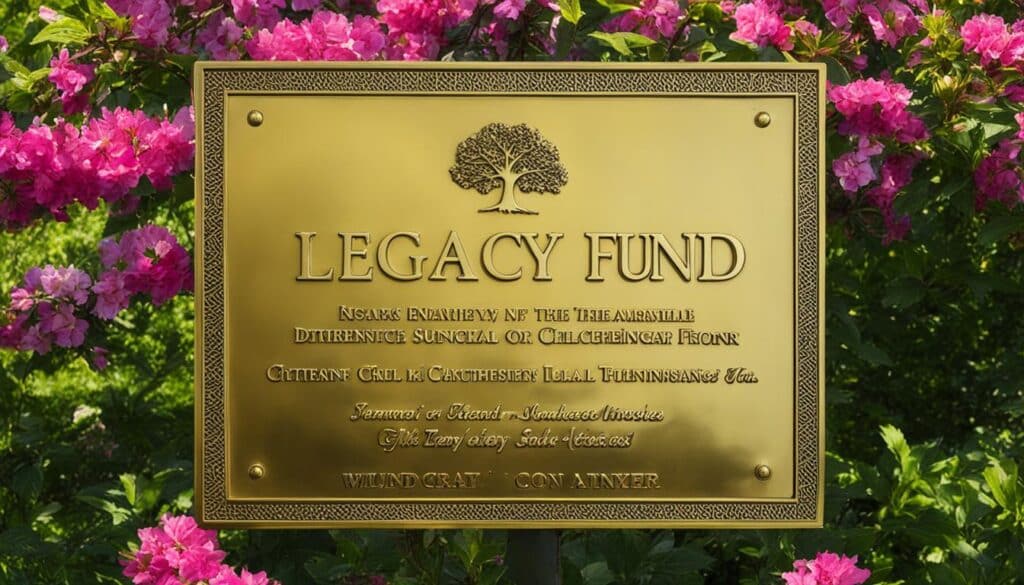
Ultra high net worth estate planning caters to individuals and families with investable assets exceeding $25 million. For these affluent individuals, the focus shifts to wealth preservation and protection, rather than accumulation. Navigating this complex financial landscape demands sophisticated and customized wealth strategies, as well as adept handling of legal and tax challenges. Coordinated tax-planning and wealth management are vital for mitigating tax liabilities and ensuring the growth and preservation of wealth. This allows ultra high net worth individuals to protect their assets while efficiently transitioning them in line with their long-term financial goals.
Defining Ultra High Net Worth Individuals
Ultra high net worth (UHNW) individuals possess exceptional wealth, setting them apart from other affluent people. Their investable assets often exceed $25 million, and the management of their estates requires a unique and tailor-made approach. Thus, understanding the threshold and characteristics of UHNW individuals is crucial for implementing suitable estate planning strategies.
Investable Assets Threshold for UHNW Individuals
UHNW individuals maintain sizable investable assets, typically surpassing the $25 million mark. Their portfolios consist of diverse investment instruments, including stocks, bonds, and retirement accounts. This distinct wealth status enables them to expand and preserve their assets while addressing various financial complexities that may arise.
Financial Complexity and Professional Team Management
Managing the intricate estates of UHNW individuals demands a dedicated professional team’s expert coordination. These estates often include non-liquid assets such as properties, businesses, and high-value possessions like art and gold. As such, estate planning for ultra high net worth individuals entails the collaboration of specialized professionals, including attorneys, CPAs, and financial advisors.
UHNW individuals require a level of service that offers a comprehensive, clear view of their financial landscape. By effectively managing various entities and reducing tax burdens, these professionals help preserve and grow their client’s wealth for future generations.
Strategic Complexity and Professional Coordination Challenges

Ultra high net worth individuals (UHNW) face the daunting task of juggling the intricacies of various professional and personal entities. In order to accomplish these demanding tasks, a diverse team of professionals such as financial advisors, attorneys, and accountants is assembled to manage their wealth and solve high net worth estate planning challenges. This level of involvement brings forth a number of complexity challenges, particularly when attempting to ensure the coherency and effectiveness of their financial life.
One significant obstacle in the management of UHNW estates is the need for high-level oversight and professional coordination. The distribution of responsibilities among a range of experts can sometimes lead to fragmentation, compromising the clarity and integrity of the estate plan. To overcome this hurdle, strategic wealth management is essential; it allows for smooth interactions between various professionals while also keeping track of a multitude of resources and meetings.
Bearing this in mind, it is crucial to simplify the complex financial structure of UHNW individuals in the early stages of the estate planning process. A majority of estate planning solutions are irrevocable, making modifications a challenging and laborious endeavor. By addressing the estate planning needs from the outset and focusing on professional coordination, UHNW individuals can establish a comprehensive, well-organized plan that suits their financial and personal goals.
The Importance of Tax Efficiency and Planning

Ultra high net worth individuals and families place a strong emphasis on tax efficiency as a crucial aspect of their estate planning. The continual rise in income, estate, and gift taxes necessitate attentive planning and the utilization of sophisticated tax strategies. Leveraging customized tax-planning strategies is essential in mitigating overall tax liabilities while addressing complex tax challenges, such as intergenerational planning and maintaining an optimal tax position.
Combating Increasing Taxes with Sophisticated Strategies
Working with skilled financial advisors is vital to develop and employ advanced estate planning techniques that are tailored to the specific needs of ultra high net worth individuals. These sophisticated tax strategies effectively combat the escalating taxes, shielding wealth from unnecessary taxation and ensuring its optimal growth. Moreover, tax efficiency plays an instrumental role in sustaining financial stability and meeting long-term financial goals for UHNW families.
Addressing Income, Estate, and Gift Tax Considerations
Advanced estate planning techniques take into account the various tax considerations involved in the management and transfer of wealth, including income tax reduction, estate tax planning, and gift tax considerations. Expert financial advisors are capable of striking a balance between competing financial solutions, ensuring that the client’s tax position remains favorable. By addressing these critical tax considerations, UHNW individuals can navigate the complexity of their financial landscape with confidence and secure their legacy for future generations.
Advanced Tax Strategies for UHNW Individuals

To efficiently guard their wealth against income, gift, and estate taxes, ultra high net worth (UHNW) individuals must employ advanced tax planning. This may encompass a range of asset protection strategies, including establishing trusts, forward-thinking intergenerational planning, and incorporating charitable giving. Customized planning with the aid of a trusted advisor enables these individuals to explore various options tailored to their unique financial landscape, thereby effectively shielding assets and ensuring a strategic approach towards managing and transferring wealth.
Trusts play a crucial role in wealth preservation strategies for UHNW individuals. They provide security and flexibility in terms of managing assets, minimizing tax liabilities, and ensuring a smooth and controlled distribution of wealth to future generations. Various types of trusts can be utilized in accordance with specific financial goals, such as irrevocable life insurance trusts, grantor retained annuity trusts, and spousal lifetime access trusts. These structures allow for tax-efficient wealth transfer while maintaining control and protection over the assets.
Intergenerational planning requires UHNW individuals to adopt a forward-thinking approach that not only focuses on the present but also considers the impact of their financial decisions on future generations. This involves carefully analyzing the potential tax implications of wealth transfer, as well as ensuring proper succession planning for businesses and investments. Strategic use of gifting and estate-planning instruments, such as family limited partnerships, generation-skipping trusts, and dynasty trusts, can mitigate the burden of tax liabilities on the heirs and promote a sustainable legacy for the family’s wealth.
Charitable giving is another powerful tool in advanced tax planning for UHNW individuals. By incorporating philanthropy in their estate plans, affluent individuals not only contribute to their community and social causes they are passionate about, but they can also capitalize on significant tax benefits. Vehicles such as donor-advised funds, charitable remainder trusts, and private foundations allow for tax deductions, exclusion of assets from estate tax calculations, and enhanced control over the distribution of wealth to charitable organizations.
Ultimately, advanced tax planning for UHNW individuals necessitates the guidance of experienced advisors who can navigate the complexity of tax regulations, wealth preservation strategies, and dynamic financial markets to optimize outcomes for their clients. With the right advice and a tailored approach, UHNW individuals can successfully protect their assets and ensure a lasting legacy for generations to come.
Residency Considerations and State Tax Implications

Residency plays a crucial role in estate planning for ultra high net worth individuals, as it directly influences the tax implications and overall efficiency of wealth transfer, preservation, and planning. States like California, known for their high tax rates, emphasize the importance of sound residency decisions and potential relocation considerations. In this section, we will explore the impact of state taxes on estate planning and the viability of relocation strategies to optimize tax outcomes.
Assessing the Impact of California Taxes on UHNW Estates
Tax-heavy states such as California, where income taxes reach over 13.3%, create a challenging environment for UHNW individuals when it comes to their estate planning, wealth preservation, and tax liabilities. While California does not have a state estate tax, federal estate, income, and gift taxes can be substantial, further complicating income tax planning for residents.
Residency status not only affects income taxes but also plays a role in determining wealth transfer planning strategies for UHNW individuals in California. A comprehensive approach, addressing both state and federal tax considerations, is critical to safeguard their wealth and efficiently manage their assets.
Relocation for Tax Benefits: A Viable Option?
The prospect of relocation to more tax-favorable regions is often an appealing option for UHNW individuals residing in high-tax states like California. However, the decision to move should be carefully evaluated, taking into consideration the source of income generation and the implications of tax laws between resident and non-resident income sources.
It is essential to understand the impact of residency on federal estate tax, income tax planning, and wealth transfer planning, and collaborate with experienced financial advisors and tax professionals when considering relocation for tax benefits. While relocation may offer significant tax advantages, individuals must also consider non-tax factors such as lifestyle, family, and social connections before making such a decision.
Gift Tax Exclusions and Strategies for Wealth Transfer

For ultra high net worth families, gifted assets can effectively reduce the value of their estate for tax purposes. Leveraging the annual gift tax exclusion limit and lifetime gift tax exemption empowers families to smoothly transfer wealth while minimizing tax liabilities. Furthermore, strategic charitable gifting can enhance asset protection strategies and provide valuable tax advantages.
Set at $17,000 per person in 2023, the annual gift tax exclusion offers affluent families the opportunity to strategically gift assets without incurring tax penalties. Moreover, the lifetime gift tax exemption, currently at $12.92 million per individual, provides families an avenue to transfer substantial wealth without immediate tax repercussions. Employing these exemptions in wealth transfer strategies enables families to significantly reduce their taxable estate.
Optimizing Charitable Gifting for Tax Advantages
Charitable gifting is a powerful tool for ultra high net worth families seeking both philanthropic impact and tax benefits. Aligning charitable giving with wealth management objectives allows these families to support causes they care about while bolstering their asset protection strategies. Customized estate plans that include a strategic approach to charitable gifting provide a holistic solution for efficiently managing wealth transfer.
Philanthropy in Estate Planning: Fortifying Legacy and Tax Benefits

Estate planning philanthropy is a crucial aspect for ultra high net worth families to ensure the continuity of their charitable values and benefit from efficient tax planning. By incorporating philanthropic elements into their generational wealth planning, these families can strengthen their legacy and reinforce their long-term financial goals. Two key methods that facilitate charitable giving in estate planning include donor-advised funds and family charitable foundations.
The Role of Donor-Advised Funds and Family Foundations
Donor-advised funds (DAFs) provide a convenient and flexible way for families to support their preferred charitable organizations over time. With DAFs, immediate tax advantages can be enjoyed, with the option to strategically allocate the funds to chosen charities as and when desired. This approach allows for a streamlined management of charitable giving, ensuring maximum impact on the causes that matter most to the family.
In contrast, family charitable foundations allow for a more enduring impact in the realm of philanthropy. These foundations are integrated into the family’s long-term wealth management strategies, offering a lasting vehicle for giving that extends the family’s influence on their chosen causes. With a family charitable foundation in place, philanthropic values are firmly rooted in the family’s legacy and passed down through generations.
Aligning Charitable Values with Long-Term Wealth Planning
Effective estate planning incorporates both charitable giving and comprehensive wealth planning strategies. Aligning these efforts is vital for ultra high net worth families as they navigate the complexities of estate planning and philanthropy. By thoughtfully integrating donor-advised funds or family charitable foundations into their financial blueprint, these families can maximize their charitable impact without sacrificing the efficiency of their long-term wealth planning.
Charitable tax planning plays a significant role in providing incentives for families to support philanthropic causes. Using these incentives strategically, families can generate meaningful tax benefits, thereby optimizing their overall estate planning efforts. Estate planning philanthropy can be an essential part of a comprehensive wealth management strategy, extending the family’s legacy while promoting the causes they deeply care about.
Customized Planning Approaches for Complex Estates

Addressing the intricacies involved in ultra high net worth estates requires a personalized and comprehensive planning approach. This ensures business continuity, protects wealth across generations, and aligns with the individual’s unique needs and objectives. Key components of these customized planning strategies include succession planning, legacy protection, trust structures, and wealth preservation techniques.
Importance of Succession and Legacy Planning
Succession planning is vital for maintaining business stability and securing future growth and success for following generations. Creating a clear strategy helps individuals identify heirs, define their roles, and provide a roadmap for transition, assisting in avoiding disputes and maintaining family harmony. Furthermore, legacy protection encompasses safeguarding the assets and values cherished by the family, ensuring their continuation even after the individual’s passing.
Integration of Trust Structures for Asset Protection
Trust structures play an essential role in customized estate planning for complex estates. They offer numerous benefits, including privacy, asset protection, and evasion of public probate exposure. Trusts also provide a framework for detailed asset distribution, enabling individuals to set specific conditions and instructions for wealth disbursement to beneficiaries. Trusts help guard against market volatility, liability claims, and other wealth-diminishing factors, ensuring personal and business assets are adequately preserved.
In summary, ultra high net worth individuals must prioritize a customized estate planning approach to navigate the complexities of their estates successfully. By focusing on succession planning, legacy protection, trust structures, and wealth preservation strategies, they can ensure a seamless transition of their wealth to future generations while maintaining privacy and asset protection in the process.
Conclusion
Ultra high net worth estate planning is a bespoke process that addresses the unique challenges faced by those with significant wealth. Employing customized strategies, tailored to individual needs and objectives, is crucial for minimizing estate taxes, planning efficient wealth transfer, and incorporating philanthropy into the estate plan.
A well-crafted estate plan provides peace of mind by protecting, preserving, and preparing wealth for a seamless transfer to future generations. Engaging with a knowledgeable estate planner, who aligns with personal values and understands the comprehensive landscape of UHNW assets, is essential for maintaining a secure financial legacy.
In summary, ultra high net worth individuals must navigate complex estate tax planning, employ asset protection strategies, and devise ultra high net worth estate planning strategies to adequately safeguard their wealth. By partnering with experienced professionals and applying effective tax strategies, UHNW individuals and families can ensure their wealth is managed, preserved, and transitioned according to their long-term financial goals.
FAQ
What is the investable asset threshold for Ultra High Net Worth (UHNW) individuals?
Ultra High Net Worth individuals are primarily defined by possessing more than million in investable assets.
What are the main challenges faced by UHNW individuals in estate planning?
The main challenges include financial complexity, management of multiple professional and personal entities, coordination of a broader professional team, and addressing the intricacies of tax planning.
How can UHNW individuals achieve tax efficiency in their estate planning?
Tax efficiency can be achieved through careful planning and the use of sophisticated tax-planning strategies, working with experienced financial advisors to navigate complex taxes and leverage customized solutions.
What advanced tax strategies are crucial for estate planning for UHNW individuals?
Advanced tax strategies may include establishing trusts, forward-thinking intergenerational planning, and exploring charitable giving options to protect assets and reduce overall tax liabilities.
How does residency impact estate planning for UHNW individuals?
Residency plays a pivotal role in estate planning, especially in tax-heavy states like California. Residency determines exposure to state and federal taxes, and some UHNW individuals may explore the possibility of relocating to more tax-favorable regions.
How can UHNW families leverage gift tax exclusions and exemptions?
They can strategically gift assets within the annual gift tax exclusion limit (,000 per person in 2023) and utilize the lifetime gift tax exemption (.92 million per individual) to reduce their estate’s value for tax purposes and transfer wealth without immediate tax repercussions.
What role does philanthropy play in estate planning for UHNW families?
Philanthropy in estate planning allows UHNW families to achieve effective estate tax planning, support philanthropic causes, and ensure continuity of charitable values by integrating vehicles such as donor-advised funds and family charitable foundations.
How are customized planning approaches essential for complex UHNW estates?
Customized planning approaches are essential to address the unique challenges, including succession and legacy planning, integration of trust structures for asset protection, and ensuring that UHNW individuals’ specific needs and objectives are met.






